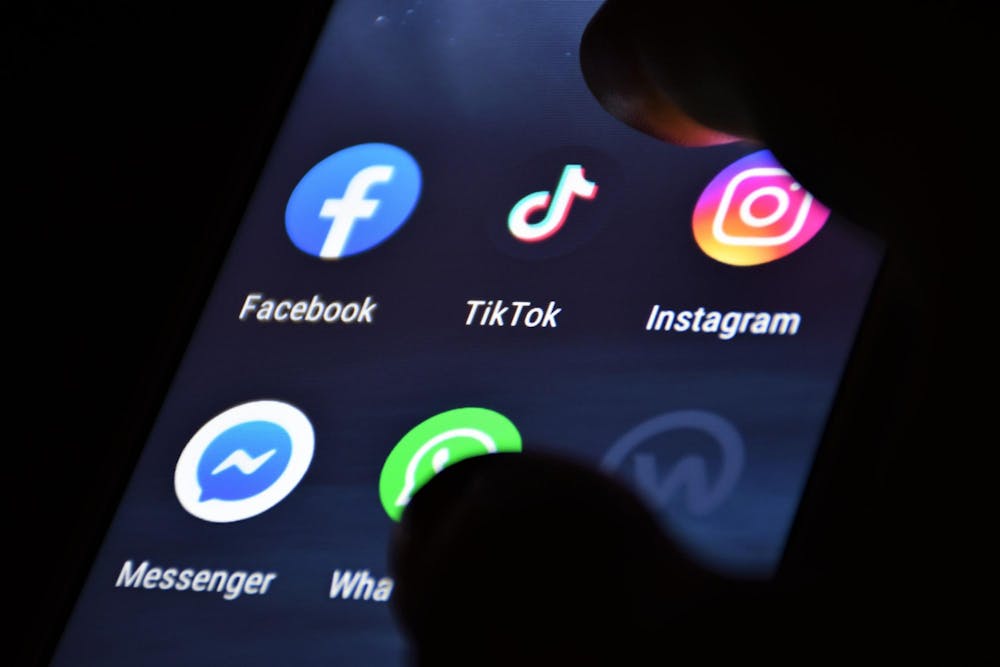The Indiana State Senate proposed a bill that may affect minors on social media: Senate Bill (SB) 11.
SB11, drafted by Sen. Mike Bohacek (R) District 8 and Sen. Liz Brown (R) District 15, requires a “social media operator to restrict a minor user's access to social media without first obtaining verifiable parental consent for the minor use,” according to a synopsis of the bill from Indiana’s general assembly.
Sen. Bohacek first presented the bill to the Senate in Jan. 2024. Since then, the judiciary committee has amended it extensively, including establishing a strict definition of “social media.”
Sen. Bohacek simplified the bill to make it more understandable for both politicians and the public.
RELATED: A journey from bill to law
“[SB 11] defines the space of social media, not necessarily the content,” Bohacek said. “We're not trying to regulate what content providers, like Facebook [or] Instagram, are doing within their sites. What we're regulating is this space.”
This bill is important to Bohacek because, while writing the bill, he said he discovered suicide was a leading cause of death in kids ages 16 and under. He believes “with access to social media, [suicide is] a direct correlation” — a correlation that strikes deep as a father himself.
According to research published by The University of Utah in 2023, there are signs that social media usage, especially by teenagers, can negatively contribute to mental health.
“Social media is a tool. It's a source of entertainment, but when people use it maliciously, it's just not the plan,” Bohacek said.
Bohacek said he understands people might oppose the bill because of the practicality of making this a law.
“I don’t think anybody disagrees [that] we’ve got social media problems [that are] hurting our kids. It's just the practicality of how to regulate it, and it's not easy to figure out,” he said.
One of the senators who opposed SB 11 was Sen. Rodney Pol Jr. (D), District 4
"My vote against SB 11 was due to the rushed nature of the bill's language and the lack of comprehensive studies to evaluate its potential impacts,” Pol said. “I am particularly concerned about requiring all users to authenticate their age.”
Pol said he proposed two amendments that would address some of the previously voiced concerns about the bill.
“These amendments [are] aimed to clarify the bill's definitions and grant the Attorney General a clear cause of action for addressing violations under this bill. Ideally, this legislation would have been referred to a study committee to thoroughly analyze its potential risks and benefits,” he said.
Pol wants the public to know that he supports addressing kids' use of social media but still has many concerns about this bill. He believes public involvement is critical.
“Too often, constituents learn about impactful policies only after they have passed. My goal is to change that by bringing legislation directly to the people, hearing their opinions, and bringing their voices to the Senate floor,” he said.
Sen. Bohacek summarized the bill’s future and what can be expected to happen.
He said he believes if the governor signs off on the bill following its anticipated approval from the Senate and state house, there will be some litigation with it.
This bill also elicits many thoughts on how social media can damage younger kids.
A first-year animation major at Ball State University, Brayden Estes, said he believes too much social media consumption at a young age has a direct link to poor body image and depression. He believes that the age might be too young unless the account can have parental supervision.
“I think the government should do everything in its power to protect our county’s youth by regulating the content available to them,” Estes said.
However, Estes pointed out how easy it is to lie about one’s age online, suggesting users must submit a photo of a valid driver’s license with all social media accounts.
Assistant professor of economics at Ball State, Nathanael Snow, said he read a book called “The Anxious Generation,” which discusses how the use of social media has increased anxiety among teenagers.
Applying knowledge from the book, Snow is concerned about how smartphones affect peoples’ lives. In his classes, Snow said he allows students to give their phones up for the period and collects data regarding which students maintain better grades.
Despite his concerns and practices in the classroom, Snow said he believes SB 11 is taking some of the power from school boards and parents in communities.
He said the bigger question should be, “What level of government is most appropriate and most effective?”
SB 11 was referred to the House Jan. 27. The bill can be monitored on the Indiana General Assembly website.
Contact Shelby Anderson via email at sanderson9@bsu.edu.





